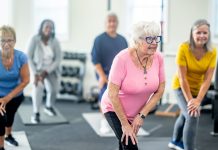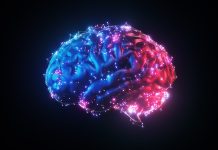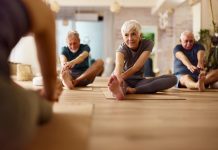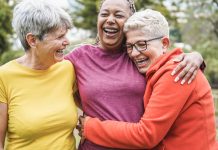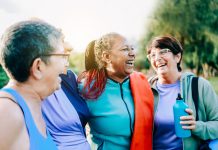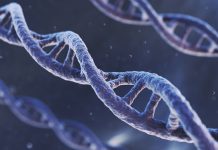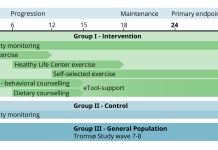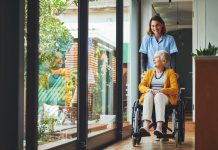Open Access Government produces compelling and informative news, publications, eBooks, and academic research articles for the public and private sector looking at health, diseases & conditions, workplace, research & innovation, digital transformation, government policy, environment, agriculture, energy, transport and more.
Home 2025
Archives
Resilience as a metric: Why midlife interventions matter more than ever
Dr Rebecca Crews and Heather Makar from Renue By Science advocate for changing health policy to prioritize proactive resilience maintenance over reactive disease treatment, especially during midlife. They emphasize the benefits of NAD+ biology as a measurable intervention framework.
Prioritizing skeletal muscle health for successful aging
Kevin A. Murach, Ph.D. at the University of Arkansas, talks us through prioritizing skeletal muscle health for successful aging, beginning with a primer on skeletal muscle aging.
The NAD+ stack, optimized: A multi-target strategy to support healthy aging
Research has identified key mechanisms driving aging and actionable targets for promoting longevity. A promising strategy is to preserve the cell’s ability to produce energy, repair DNA, and stress resilience, with nicotinamide adenine dinucleotide (NAD+) playing a central role. Here, Dr. Rebecca Crews presents a multi-target approach to support healthy aging.
Addressing the challenges of dementia care
Individuals living with dementia and their care partners often face numerous challenges that can lead to feelings of isolation. This article outlines how the Jockey Club Centre for Positive Ageing’s crisis management hotline service has become a vital resource for supporting the wellbeing of those affected by dementia.
The microbiome in early life: Setting the stage for optimal early life health in...
Researchers at the University of South Florida Microbiomes Institute are exploring exciting new areas in microbiome research; here, they discuss the essential role that the microbiome plays in early life health.
Healthy aging: How science and daily habits preserve brain function
Key nutrients like omega-3 fatty acids, curcumin, and NAD+ are important for maintaining cognitive function, but their effective delivery to the brain is hindered by the blood-brain barrier (BBB) and age-related declines in nutrient transport. Dr Rebecca Crews and Heather Makar explore the importance of overcoming these delivery challenges to enhance strategies for cognitive longevity and healthy aging.
Microbiomes should be incorporated into The One Health Joint Plan of Action
The One Health Joint Plan of Action was created by major international organizations to tackle global health issues related to human, animal, plant, and environmental health. This article emphasizes the importance of integrating microbiomes into this framework to enhance health systems and prevention strategies.
Identifying potential exercise mediators
Dr Robert Wessells and his team at Wayne State University are researching exercise mediators and mimetics in fruit flies (Drosophila melanogaster) to explore how to provide the benefits of exercise to individuals who are unable to access it. Here, he shares what he has discovered during his research.
Stem cell exhaustion and its role in healthy aging
Scientist Sarallah Rezazadeh from the Icahn School of Medicine explores the molecular mechanisms behind adult stem cells as we age.
The microbiome and aging: Unlocking new frontiers in healthy longevity
Research conducted by the USF Microbiomes Institute and the MiaGB Consortium is uncovering the significant link between microbial communities and host biology. This understanding could lead to new therapies for age-related conditions. Shalini Jain, Christian Brechot, and Hariom Yadav provide further insights.
“It’s not your fault!”: Aging and the dilemmas of literacy in a digital world
As the world becomes increasingly digitally focused, Kim Sawchuk, Director of engAGE: Centre for Research on Aging, Concordia University, examines what this shift means for older adults trying to navigate media literacy.
Seasonality and climate change: Challenges for physical activity in older adults
Research indicates seasonal variations in physical activity levels among adults in different climates due to temperature and humidity. Climate change’s increasing extreme weather may significantly affect physical activity in older adults already struggling to meet activity guidelines. Isabelle J. Dionne from the Université de Sherbrooke explains.
Delegation of financial decision-making to spouse in old age
Professor Anup Basu from Queensland University of Technology explains the process of delegating financial decision-making to spouses in old age.
Timely diagnosis and intervention for people with dementia
Jockey Club Centre for Positive Ageing experts highlight the importance of timely diagnosis and intervention for people with dementia.
Identifying potential exercise mimetics that deliver the benefits of exercise
Robert Wessells, Associate Professor at Wayne State University, discusses his research on identifying potential exercise mediators or mimetics to deliver the benefits of exercise to less mobile individuals and help reduce the global disease burden.
Healthy aging: A novel therapy to reverse age-related damage
What if we could turn back the clock on age-associated dysfunctions by using a therapy that not only treats symptoms but acts to correct the underlying pathology and restores cells to normal function? Lori A. Birder and Edwin K. Jackson from the University of Pittsburgh School of Medicine, explain how this could be a possibility.
A call for intersectionality in gerontological nursing education
Addressing the triple jeopardy of ageism, sexism and racism within healthcare systems is crucial to ensuring equitable health outcomes for all older people, write Professor Jordana Salma, Professor Sherry Dahlke and Professor Kathleen Hunter of the Faculty of Nursing at the University of Alberta.
RESTART Project Q&A: Empowering healthy aging
In this Q&A, a team from the RESTART project explores their groundbreaking intervention model designed to empower people to embrace healthier lifestyles as they near retirement.
Improving the wellbeing of older adults through community-based music and movement programs
Find out here about a geriatric psychiatry program at the Music and Mental Health Research Clinic that improves the wellbeing of older adults.
Ageism, gerontological nursing and healthcare contexts
Professors Kathleen Hunter and Sherry Dahlke from the University of Alberta’s Faculty of Nursing explain why gerontological nursing education is key to addressing the unconscious negative stereotypes about ageing and improving care for older adults.


